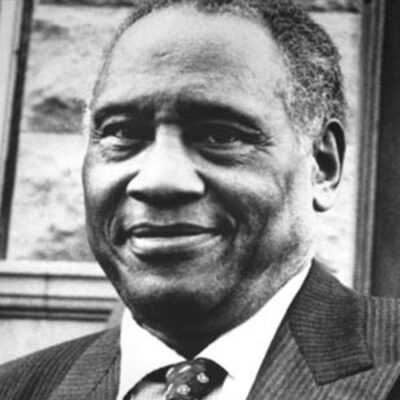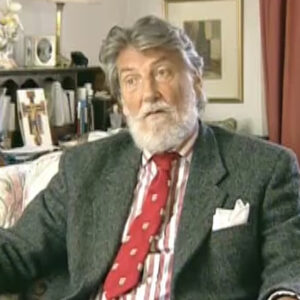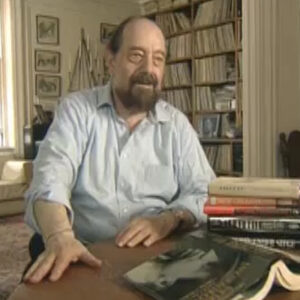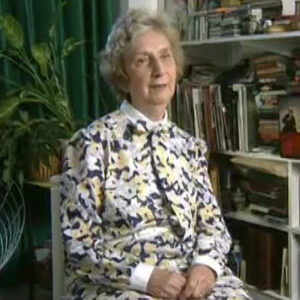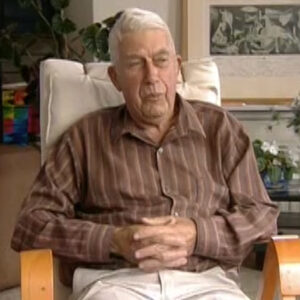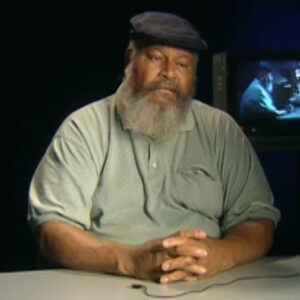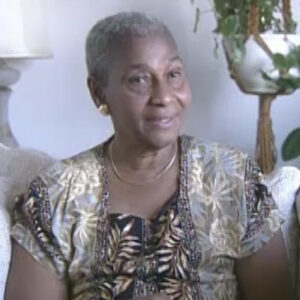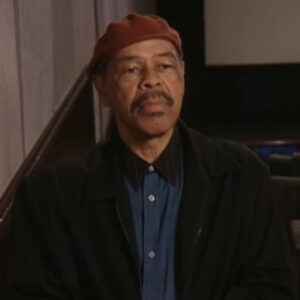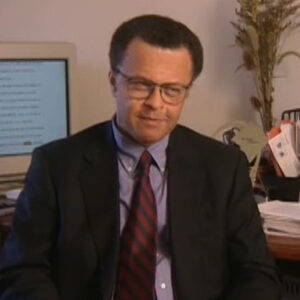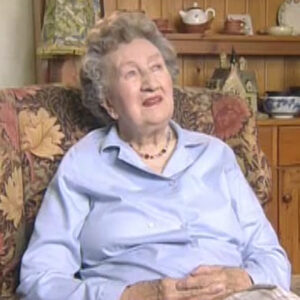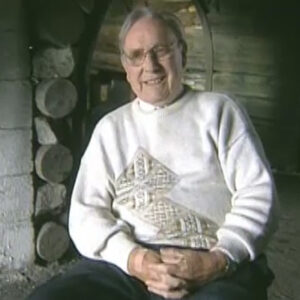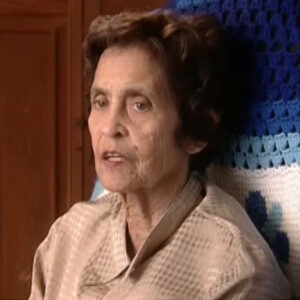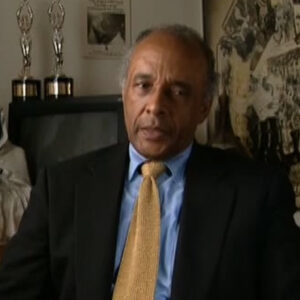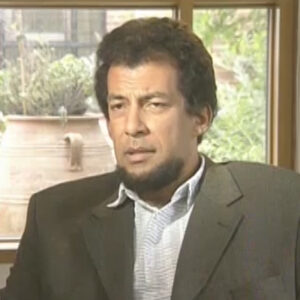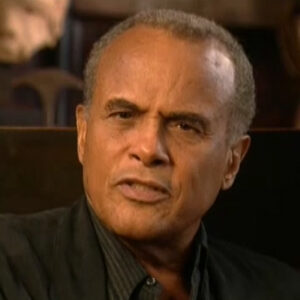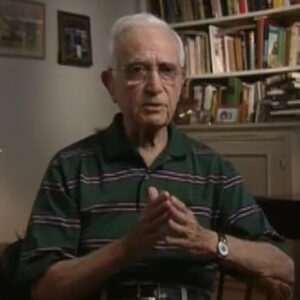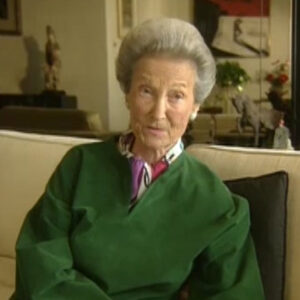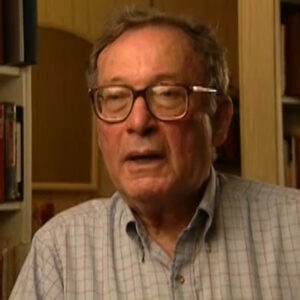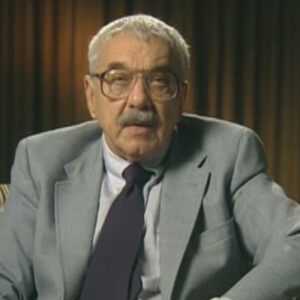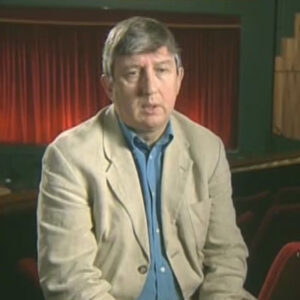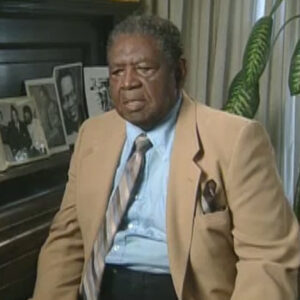Speaker Well, I don’t know why I don’t ever remember my parents speaking about them, but it seems like I always know him and I always thought he was a great singer. And I never thought of him as being political in any way. I probably saw some movies that he was in and.
Speaker He seemed to be in a popular life. I mean, you know, he was like a real star, like every movie star. That’s right. So I guess, you know, he probably just.
Speaker This film is just around, but wait, when was the first time you actually.
Speaker Well, first of all, you actually saw that the first time you met him, or did you just see him?
Speaker Well, I had seen him in concert. But you don’t mean that. You mean personally for him?
Speaker No, I didn’t. Yeah. You see, if you want to just buy yourself or something.
Speaker No, I didn’t go alone, but I went I remember one in particular. It was a yeah, I was married to someone else at that time and his parents lived in New Jersey. And we were on our way home to Manhattan. And we passed the storefront with the sign that said Paul Robeson concert. And, uh, I insisted that we stop and get tickets. And it was a church group, apparently, that was putting on a concert.
Speaker And we went and as I recall, was mostly a black audience.
Speaker You know, that was a very good concert. So how are you best buddies up regularly?
Speaker Not very regularly in San Francisco.
Speaker Oh, that’s good.
Speaker OK, so that’s the first time you actually met him for the first time?
Speaker I met him personally with my first date with rebels, and he took me to a society downtown and he said to the maitre d, Mr. Robson’s table, please. And I didn’t pay any attention because, you know, I thought it was a special table and he was asking for that. And when I got there, Paul was entertaining a couple from Cleveland and we joined them. And Rebels was a great table hopper where he’d go off by himself to the bar and the Cleveland couple got up to dance. And there I was with Paul and he didn’t say one blessed word and I didn’t know what to say. And I somehow felt it would be terrible if I said I admired your singing or something like that. So I didn’t say anything either. And that was the very first time I met him. So who broke the silence? I don’t remember.
Speaker Uh, he says you have to take a drink of water. They didn’t know what was a New York accent. You know what good you do. I recognize. Where were you born in New York, Brooklyn? I think so. For me to. OK, so now how did you get to meet Revel’s I mean, how did the Cafe Society was that your introduction into your political life active or were you?
Speaker Probably was into New York’s political life, right? But by that time in my life, I had my own progressive ideas.
Speaker Uh huh. Can you talk a little bit about how you got to ideas and how did you act on them or how they worked out?
Speaker Well, both my parents believed a great deal and trade unions.
Speaker And so that was one way and how that one help it at that period of time.
Speaker I’ve heard of that.
Speaker Well, I’m going to be 80 years old on my next birthday. So.
Speaker So what was rivals doing at that time in New York?
Speaker He was with the National Negro Congress, which is a new organization. No, wasn’t a new organization is no longer in existence, but it was around for a while.
Speaker But when he when he was in working with. It wasn’t new then. No, I don’t think so.
Speaker And so tell me more about your impression of. After you rebels, when you left the club, what did you think about most did you ever talk to?
Speaker Rebels was a little high when we left the club and Paul noticed it and he said that he would see that we got home and I thank him very much, but said I could handle it myself. And that was the last time I saw him until well, maybe a few weeks later he would meet with Raab every once in a while. And by that time we were going out and, uh, it was very casual. The when when I got married, Paul was at a concert in Cleveland, I think it was Cleveland, and he flew back for the reception and then went back that same night to continue his concert tour. And I always thought that was very sweet of him, that he sing at the reception.
Speaker Absolutely. No, it was a guest. And what what was give me an idea of.
Speaker Your life with rebels, I mean, he was sort of he was deep into the political.
Speaker So trade unionism basically, right? Uh. Well, all right. He had so many meetings, I used to say it took you five years before you got married a year, and that adds to longevity, the weather, the problem.
Speaker I mean, all those meetings and the people come to the house a lot.
Speaker Uh, always had a lot of people at the house. That is until pastor to come over and then no more crowds.
Speaker Why? Oh, because he didn’t need it. We didn’t need it.
Speaker And with other people with this stuff come.
Speaker Oh, no. I mean, somehow it changed.
Speaker No one was this this is.
Speaker I remember Paul was over at the house a few times. Well, I was pregnant, but he didn’t actually start to be around until after Peekskill and, uh, and young Revel’s was four months old.
Speaker The term.
Speaker And then he came around because of safety, because we lived in Harlem and we’re at one hundred and thirty eighth and Madison Avenue, the Riverton Apartments, we lived there.
Speaker Now, weren’t rebels and Paul friends from way?
Speaker Oh, yes, yes, I think rebels originally met Paul at his brother’s house in Chicago, but he also knew him in Seattle and.
Speaker I’m sorry that the plane was coming out of this building, something that was something. So would you say that again for me?
Speaker I originally met Paul in. Brothers Horace’s have hours, Katan.
Speaker But Paul would visit in Seattle, too, and that’s where his mother lived. And and then, of course, in that way, in New York, I guess they were quite good friends.
Speaker Yeah. Did you know much about did you find out about their life and buddies? Everybody says it like thick as thieves said a really friendly ran around and they told the people that the party on the other side who revels in power.
Speaker Yeah, well, maybe I don’t know. I mean, I do know they you talked into the night sometimes on one night, and they would argue about knows what, because I probably could stay up that night. And I do remember one incident where Paul got so angry he walked out in a huff. And I don’t think he came back for about two weeks and then he came back, he said. And furthermore and that was the first thing he said and the thing went on is that there had been no hiatus. You know, they were talking about, oh, probably some political disagreement. You know, it’s funny, Revel’s might have said a lot of people would say that they thought Paul was making a mistake about this or that or the other thing, and you could not convince him to make any kind of a change, even if he thought you were right. He would never change the path he was on until he was so sure of what he wanted to do. And until that time, he just continued. And then a lot of people got frustrated.
Speaker Maybe this, uh, I know during the Cold War, you know, the government and those committees, they tried to make them change. And that was a tough time. Did he visit you all of your life there that time? Not much.
Speaker He was never in this house by that time. He was, I think, sick.
Speaker But now the parts of San Francisco where there just one was I mean, you and Revel’s relationship with him sort of a real long period of time. Very few people. Yes. Yes. When did he when was he around most what period of time was he around most?
Speaker Right after the second pigskin. Was he shaken up? No, I don’t think so.
Speaker And. I really don’t know. I don’t think so. When when a reb was arrested, along with a number of people who were protecting the concert and in fact, Helen Rose and got them out, she she called Henry Wallace and tried to get his assistance. And he didn’t want to help or could not help.
Speaker Then, uh, Helen was a very smart lady. Uh, she called AP and she said, so your guys are stuck on the hill with Pickersgill and they called the governor and everything opened up immediately.
Speaker So that’s how I got the plan.
Speaker And I remember all of the students that.
Speaker Somebody is coming to your assistance right now, open the door. I thought I’d rather do it. Thank you. I have another support.
Speaker No, thank you. OK. We came home hours before Rob came home and I remember Paul called to find out if he was OK, and I was very touched by that, that he took the time and the time to do that. Did you not see his wife? Yes, not well. But she came to the house occasionally to see Paul.
Speaker With Paul. Oh, well, give me the Senate. So now he stayed with you all for long periods of time, though he never lived with us.
Speaker Now that he’d be over there and he’d study, he’d play chess with himself, Soviet chess moves and study languages. Um. He was kept pretty busy and and he stayed at the house, OK?
Speaker I thought that he went through at a time that he is a little busy for a couple of months or so.
Speaker No, he never lived with us. You know, young Paul and Marilyn stayed with us for a couple of days right after Peekskill because he was very worried about them just after they got married. And you are out here? No.
Speaker OK, give me give me the chronology. So you met revelers in New York? Yes. You got married? Yes. OK, if you can say that and then give me a chronology about well, I was in New York.
Speaker We got married in New York. We had our child in New York. And when young Revel’s was about three and a half, we went out to San Francisco. I waited for him to get a job. And then Young and I came on out.
Speaker OK, so now during the time that he said here, there will be one a day or two days or so, just one day, you’re talking about San Francisco.
Speaker When he was with us, he only stayed during the day. He was never he never lived with us.
Speaker So once he babysat or twice he did that you did, and I remember how hard it was. We used to call diapers wrappers, that candy bar and and he would try singing young Revel’s to sleep and it would just wake him up so he would finally learn to sing one note and for him to sleep and woke up and and my son thought for a long time that curly headed baby was his song. And once we were at a concert in Oakland and Paul said he had a request for a cure, we had a baby and my son stood up.
Speaker Now, obviously, at that time, I guess about 10.
Speaker Did you get the feeling that despite all his activity, that he was gone a long time or maybe even a loner?
Speaker Yes, yes. If you could say that for me.
Speaker See, if I ask you a question for this film, they’re not going to hear my answer. Oh, I see to hear. Is you okay? Yeah. Yes, my question is OK. Yes.
Speaker He was able to amuse himself very, very well. And he never seemed to waste any time. I mean, he spent hours and hours and hours of language. And of course, he knew so many of them and had infinite patience.
Speaker And once he told me that he could just sit in the house and and not go out and not see anybody for weeks and weeks. And I think he did that in England once. I don’t know circumstances. But, uh, so he was sort of a loner.
Speaker Because you never get that sense, you know. Did you ever hear him talk in a. Down cast or disappointing way about his experiences, like, you know, wow, this is really bumming me out, or this is what people would say that, you know, is the talk about being depressed and a certain kind of. I mean, before his depression.
Speaker I really don’t know. I know I I know that there were many times that he was depressed, but I don’t think he articulated it and.
Speaker Could you tell? Yes, and he wasn’t happy about having his passport lifted.
Speaker I mean, who would be?
Speaker Were you in agreement with most of the political fence that he said?
Speaker Not completely, no, I didn’t agree with everything he said. I certainly respect his right to say it, and I always took it for granted that he was ten times smarter than I was and probably knew better, but they just weren’t my experiences.
Speaker When you and Revel’s first got married, were there any problems being in New York?
Speaker You know, the couple.
Speaker Well, we lived in Harlem and so we didn’t have a housing problem. Several Negro women came to see me and, uh. Just let me know that it was fine, that we were married, and as long as I did not take away from the struggle, everything would be fine. But if I did, then it wouldn’t be very good.
Speaker And they put this in that video and they said that, yes, what did you say?
Speaker I said I didn’t intend to take them away from the struggle. And, you know, I didn’t I don’t think I could have even if I wanted to.
Speaker Was that something that you that you found attractive about it? I think within this general.
Speaker We have a very personable man and. He had the kind of a personality they just drew people to him and their children, absolutely adored him, absolutely adored him and. Even my own son, I mean, put two of us together and it was dad that, you know. Yeah.
Speaker But but he was a pretty committed person and he spent a lot of time, so it must have been something it wasn’t something you lived with.
Speaker I mean, you didn’t, like, begrudge him that. You actually felt like he was in.
Speaker That’s right to.
Speaker So did you get us I mean, when was the first time that you really realized that Paul and I were really close friends?
Speaker Close, close.
Speaker I think I realize how friendly they were when he flew back just for the wedding reception. I mean, you just don’t do that casually. And he certainly didn’t come back for me.
Speaker And did you know that they had hung out together, but you a younger man.
Speaker I know they made several trips together and that was around a great deal, and I remember on a train, I didn’t see this personally, but I was told about it how they are a whole comedy scenario on Othello and the whole killing just about me. And I guess it was Desdemona. I don’t know.
Speaker You should take some water, because if you think I’m beginning to be thirsty, I know this is some time ago, but could you remember any funny incidents that happened between them in your house?
Speaker I mean, that’s the thing where he walks out the house and comes back to the toilet. That was funny. Early stuff like that.
Speaker Could he cook, did he have a cook?
Speaker I don’t remember ever cooking, at least not in my house, but he did do the dishes occasionally.
Speaker And so that was nice. What did you what did you think? I mean, I don’t know if you can answer this, but what did you think of his relationship with S.E? You know.
Speaker Well, he used to say that rocking chair is never going to get me, we used to say that all the time, but it did.
Speaker And so he referred to the rocking chair.
Speaker No, he meant he was never going to to retire with AC. And and but as you know, he did.
Speaker It’s funny, he said, I guess he probably went screaming and crying, but he did go in if they stayed together.
Speaker Um, with the as as a woman, did you as a woman, as a woman, did you sort of, as I say now bond with us?
Speaker I mean, did you were you, like, friendly with her since your husband was tight with Paul?
Speaker No. As and I never had that kind of a relationship. She was always friendly and polite when she came to my house. And I was certainly friendly and polite to her, but we never had any kind of relationship. A lot of people say that to.
Speaker Um, let me ask you this, that the rebels ever ask Paul to do some support work for, you know, the different labor union activities or, you know, political activities come out and sing or.
Speaker I don’t believe he ever asked Paul to do that kind of a thing, like do concert work for a for himself personally, but he would go around a great deal with him at concerts and go backstage. And Paul would be very, very nervous before a concert.
Speaker Oh, yes, extremely nervous. And, uh, and rebels would try to help him unwind.
Speaker Did you see this I would hear about it because I wasn’t backstage, Revel’s was backstage.
Speaker So you and I live together for a long time, so the rebels ever say anything about.
Speaker Maybe Paul was I mean, about what Paul was afraid of, not afraid, but was was tense about, you know, I mean, if you talk about your good friend.
Speaker When he was tense before a concert, I think he just got tense before every concert.
Speaker I suppose no matter how famous one is, they can still be a little stage fright.
Speaker What about any other thing that he might have? You know, see, the thing about men sometimes that they’ll tell you the only real well seems to be one of the few men that will really because of their long relationship, he could really tell them stuff. So I was wondering if if I told you stuff that, you know, that Paul told him that we don’t know about.
Speaker Like, you know, what made him nervous, not so much the concert, but politically, did he think he was like when he sent his son to Russia? Was that a big issue or.
Speaker Well, we certainly weren’t around then, or at least I wasn’t around and Paul Paul was very young at the time and, uh. I don’t think I’ve met young Ponoko, who was about 18 or 19. And.
Speaker No, rebels never told me anything that I was especially nervous about a. I don’t think he was there was about politics or anything like that. He was a fighter.
Speaker And yeah, there were some things that made him sad. I remember one night, uh.
Speaker Josh White came to see him at our house and he was due to go to Washington the next day. That is Josh White was and he was going to talk against Paul in Washington. And he wanted people to know that he couldn’t help it, that he had to. And Paul was just very nice about it. But I’m sure it made him unhappy and and said.
Speaker Did you see any examples of him being unhappy or sad?
Speaker Well, he could get very quiet. That’s drawn.
Speaker That’s how he showed unhappiness, happiness.
Speaker I don’t really know how he showed in happiness.
Speaker Do you think that and he seemed to be a very, very private person despite his.
Speaker Would you say that he was extremely private? Yes.
Speaker Even with you in reference to Newfie.
Speaker Mostly, mostly, every once in a while, he tells little stories about things that happened to him earlier in life, but pretty much private.
Speaker Once he once he was reading or Thelo in Russian, and and so he had me play the part of Desdemona and I do it in English, and you could tell from his voice just where he was in the script. So it was sort of a lot of fun.
Speaker It’s pretty talented person.
Speaker Yes, he was. OK, you know what, I didn’t you didn’t finish for me your chronology, you know, you had us he said you had your son in New York. So where did you go from there?
Speaker Came to San Francisco. Together, I came with my son, Revel’s was already here. And we’ve been here ever since you got to Los Angeles at some point only to visit, I went to Los Angeles before I met Revel’s.
Speaker Another New Yorker going to the West Coast after and leaving.
Speaker I want to ask after the Peekskill concern from some precedent here.
Speaker What about the FBI harassment of the head of the government? Did that affect you and rebels? And did were you possibly tapped or did that have any effect as they started to move in on the government and a heavy way? Did that affect you or was there a run off when you.
Speaker Revel’s was questioned by the un-American Activities Committee, but on his own, I mean, I don’t believe it had anything particular to do with Paul. It may have. And I don’t remember anything in terms of my life that had anything to do with the FBI, but I never requested a file, so I don’t know.
Speaker What was the charge against rebels standard? What are you now?
Speaker They just gave the committee, just asked him a lot of silly questions. There was, I forget the name of the senator, but he was someone from the south and they were questioning Revel’s about things in the trade union movement.
Speaker And there was someone by the name of Ferdinand Smith, who was it important trade unionist.
Speaker And they kept referring to him as Dr. Smith and asking Revel’s if he knew Dr Ferdinand Smith. And he said, no, I don’t know. Dr. Smith, are you telling me you don’t know Dr. Smith? Well, I can show you meeting after meeting that you have attended where he was there. And I said, you mean Fernande Smith? Well, he never even finished high school. He’s not a doctor.
Speaker I know that you describe that last visit in Philadelphia. Did you ever say how Paul was? And also tell us a little bit about the bracelet on his wrist.
Speaker Oh, Reverend, I visited. Washington, D.C.. And we were going to New York and on the way to New York, we stopped in Philadelphia to see Paul and we stayed with his sister. And Paul lived there at the time and he wasn’t actively sick, but he was it wasn’t the old Paul that I knew. And you get into a conversation with him and for a few minutes he would be fine.
Speaker It would be almost like the old Paul. And then he would just stare into space.
Speaker And he had had a.
Speaker A heart Pasir. And they put a yeah ID bracelet on him at the hospital and he refused to have it taken off because he was convinced it has something to do with his pacer. And we saw him months and months and months after the surgery. You still wear that bracelet.
Speaker What do you think in history, how do you think he’ll be remembered?
Speaker Well, I’m hoping this program will do something about what the situation is now, a situation where children don’t know who he is and not only children, but but people who are now adults don’t know who he is. And to me, that is a pity.
Speaker What do you think of them? You know, I was gone and you remember? What do you think?
Speaker I think it was I think Paul was a great man and, uh.
Speaker In many respects, a very lonely man.
Speaker But yeah, but he had a lot of friends, though, he had many, many friends, and I think some people can still be very lonely, even if they have a lot of friends.
Speaker Why do you think it was only just a couple of reasons, and it was personal observation, but.
Speaker Well, I think it was well, I admit it’s very much my personal opinion, um. He was so self-sufficient that I think something happened in his life, taught him how he could get along without anyone else.
Speaker OK, I just wanted to ask, when you the rebels heard about the suicide attempt and hospitalization in Moscow, how did you hear about that and what was rebels understanding about it?
Speaker Did you try and find out if Paul ever referred to it later or how did you hear?
Speaker I never heard of any suicide attempt. I knew he was in a hospital in Russia and I never really believed that he belonged in a hospital in Russia. I know he was there.
Speaker And, uh. And just don’t believe in. I can’t tell you why I believe it, but I really don’t.
Speaker I thought he was he was being abused when he was hospitalized in Russia.
Speaker Paul Dunja thinks that he was abused, too. I think that was part of the same.
Speaker And I believe he received treatments while he was in the hospital, which probably did not help him.
Speaker Because when he came back from abroad. He was just different.
Speaker He was not the the, um, Paul Robeson that I knew at all. He said again, when he came back from abroad, he was a different part.
Speaker And one that I didn’t know at all, so so do you think that his treatment was a deliberate attempt?
Speaker I have no facts on there, but it was a feeling I had that he did not belong in the hospital getting the kind of treatment he received and not even positive about what treatment he received. Part of my feeling could come from talking to young Paul.
Speaker From your own observation about the behavior, can you describe the difference? How was he doing or how was he not the same? We had a.
Speaker Well, before. So you have to pick skill and those were tense times for him.
Speaker He was still a very outgoing person and I believe all that changed when? When. He came back from abroad.
Speaker Well, the government was had been after him, we think that possibly they tried to do something.
Speaker No, I don’t think it had anything to do with this government at that time. That is, he already had his passport back, but. The government certainly never did anything to help him and.
Speaker Well, anything else you want to say? I don’t think so happy that way.
Speaker I, uh. OK, well, uh.
Speaker Oh, very sad, but we have to be quiet for 30 seconds to get the record, the noise, the ambience in the room, just random.
Speaker To go back to school, go back to.
Speaker On I he he got a lot of acclaim to towards the end of his career, right?
Speaker I mean, I saw those things downstair recognition, at least when you say that.
Speaker The rebels had a very varied life, he he. After his work with trade unions, he put together one of the most successful housing developments in the city of San Francisco as he didn’t put it together, but he made it a success. And it’s probably the first really integrated development that it is. And, um, and then he went on to work as the first black deputy for mayor in San Francisco.
Speaker So he had in many ways a very successful career. A come back, I should say, because he certainly was no longer an important part of the trade union movement, and so it was a completely different kind of a career. Do you see any similarities between him and Paul? I mean, they were friends. They’re very good friends, but not really similarities.
Speaker You know. One last question and you may not know the answers, but. We’ve heard from several people when they were in London and more or less living apart or falling in love with Yolanda Jackson and was about to propose, they’re about to marry and give a statement to reporters that it was all amicable, you know, and had a very good life. Now, moving on to something of that shared with you and rebels, or did all of them refer to that or did you hear about that?
Speaker Well, I knew Paul was in love with someone, and I don’t know what happened to that relationship, but it didn’t work out and. I thought it was he was in love with someone before he married Jesse Matthew. Oh, yes. And he used to speak of that relationship sometimes with a great deal of regret. And the.
Speaker And I didn’t know these people personally at all.
Speaker Yeah, I had heard that the rebels had Yolanda Jackson impression she was an actress and when Paul was famous in London, that there was a lot of people who said maybe you shouldn’t do it, but I didn’t know anything about that.
Speaker Was she white? Yeah. I don’t think rebels would have said any such thing to Paul about not doing such a thing. Rebels rebels was married twice and both times he was married to a white woman.
Speaker It wasn’t about white. It wasn’t because he didn’t need an adviser. He didn’t advise Paul on that because his wife was something about, you know, he had a he had a wife and she is playing around.
Speaker I am positive rebels never would have given him any advice of that kind.

